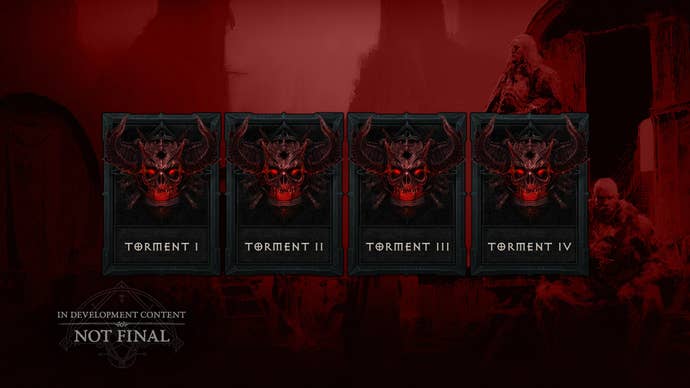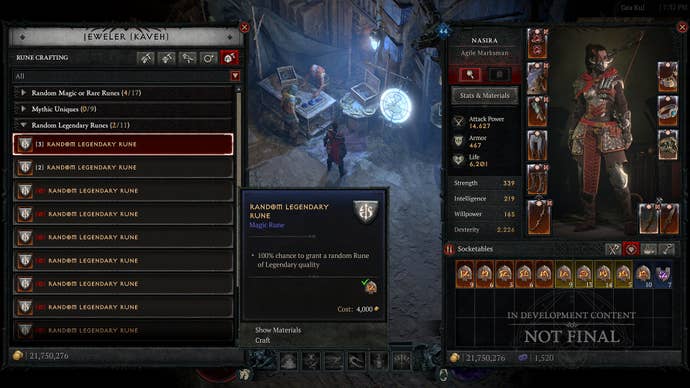Blizzard has spilled all of the beans on Diablo 4’s next big patch, version 2.0. The major update arrives alongside the launch of the Vessel of Hatred expansion in October, but PC players can get their hands on it next week as part of the Public Test Realm (PTR).
Patch 2.0 brings massive fundamental changes to the structure of Diablo 4, and the vast majority of changes will be available to all players, regardless of whether or not they own Vessel of Hatred.
The big news coming out of last night’s Campfire Chat is that the level cap is being decreased to 60 from 100, as players managed to correctly guess. Blizzard said that it’s by no means an attempt to make the levelling process slower, only that it allows progression to be more meaningful. It also ties into the new Paragon and character level split.
For starters, Paragon Points earned will be tied to the realm (Seasonal/Eternal), and no longer character level. In other words, they’re going to be shared across all characters on the same realm. With the new level cap of 60, players will earn ten extra skill points through their levelling journey.
Then, at level 60 and beyond, players will start earning Paragon Levels, which are used to unlock Paragon Nodes. You may notice that this is quite similar to how it worked in Diablo 3, and Blizzard said that it’s not opposed to bringing back ideas from older games if they make sense in Diablo 4.
As to what’s going to happen to your current characters, any of them above level 50 will have all their XP-based Paragon Points converted into the new Paragon Level. Part of why Blizzard is making this change is that numbers became too massive to quickly, making them impossible to parse. As part of this change, the developer will also be adjusting health, armor, and other core stat values.

Another thing making the jump from Diablo 3 is the new (old) difficulty system. Diablo 4 will now have two tiers of difficulty: Standard, and Torment. Standard is made up of four levels: Normal, Hard, Expert, and Penitent. Torment, on the other hand, starts from one all the way to Torment 4.
As a result, the World Tier system has been replaced. The Standard difficulties are intended for players making their way through the new cap of level 60. Normal and Hard are unlocked for all players at the start, but you need finish the prologue to unlock Expert. Penitent is intended to prepare players for Torment difficulties, and is unlocked at level 50. Gold and XP earned increase the higher in difficulty tiers you get
Things work a little differently in Torment, where your progression is going to be tied to endgame activity the Pit. The better you do, the higher Pit tiers you can access, and the more Torment difficulties will become available for you to unlock. All the way, your chances of getting Legendary and Ancestral drops increase.
It’s also worth noting that Torment difficulties come with Curses, which reduce your armor and resistances values, starting from -250 and 25% at Torment 1 up to -1,000 and 100% at Torment 4.

As part of patch 2.0, all classes will also get one new active skill, and five new passives.
The only major addition that’s only available to owners of Vessel of Hatred are Runewords, a feature that makes its way from Diablo 2. Runewords are socketable items that basically allow you to create your own spells, and some even let you borrow skills from other classes.
Runewords will be available to test in the PTR, but you’re going to need to buy Vessel of Hatred when patch 2.0 arrives in the live game to access them. There’s more you can read up on on the official blog. As for the PTR itself – which also includes the recently announced Party Finder feature – it’s going to be available only through Battle.net, from September 4 to September 11.




